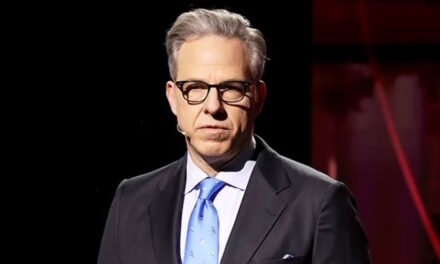In a recent discussion, Mike Rowe, well known for his television hosting and advocacy of skilled trades, raised concerns about what he perceives as a decline in work ethic among younger generations. This phenomenon, he argues, is compounded by the advent of a culture that he describes as nurturing a “snowflake” mentality, where individuals are less equipped to handle criticism and challenges. Rowe’s insights prompt an examination of workplace values and the significant shifts that have occurred over recent years.
Rowe’s commentary stems from a broader debate about societal and educational attitudes toward work and responsibility. According to Rowe, the rising trend where young people are shielded from failure and hardship has led to a generation less prepared for the rigors of adulthood and professional life. He articulates that the falling emphasis on accountability allows an environment where entitlement and complacency can flourish.
His concerns are particularly relevant in an age where technology plays a dominant role in daily life, seemingly streamlining tasks and reducing the necessity for hard work. The convenience and accessibility of digital solutions, coupled with an increasingly competitive job market, can often obscure the value of traditional work ethics, which include resilience, dedication, and an understanding that success often involves overcoming adversity.
Rowe’s reflections touch on the institutional factors contributing to this perceived decline. He argues that as educational systems emphasize emotional well-being and inclusivity, there may unintentionally be less encouragement to experience the consequences of failure. This can manifest in various ways, from lenient grading policies to a lack of encouragement for developing a strong work ethic through personal responsibility.
The impact of this “softening” trend is visible in many sectors, particularly those that rely heavily on skilled labor. Trades such as plumbing, electrical work, and construction have seen diminishing attraction among new graduates, who often gravitate towards jobs in technology or services that promise less strenuous physical labor. Moreover, statistics reveal a growing number of unfilled positions in these essential jobs, indicating a significant disconnection between available opportunities and the workforce willing to pursue them.
Rowe emphasizes the importance of encouraging hard work and persistence to help young people better navigate the realities of the job market. He encourages parents, educators, and mentors to instill values that prioritize effort, discipline, and resilience. These principles not only prepare young people for specific careers but also equip them with the tools to succeed in various aspects of life, fostering a well-rounded perspective that encompasses personal growth and achievement.
To further illustrate his point, Rowe often references stories from his own experiences and discussions with tradespeople who have shaped their careers through determination and grit. He likens skilled trades to a form of artistry, requiring a significant commitment to mastering techniques and developing expertise. In this context, he argues, the “snowflake” mentality dismisses the notion that hard work and perseverance are essential components of longevity in any profession.
Another layer to Rowe’s argument is the misunderstanding of failure. He believes that societal pressure to shield individuals from disappointment has fostered an aversion to risk-taking, inhibiting innovation and creativity. He posits that facing challenges head-on and learning from mistakes is fundamental to mastery in any field. To combat these trends, Rowe champions the significance of mentorship and hands-on experiences that can better prepare young people for the workforce.
Moreover, Rowe’s observations extend into the broader cultural implications of declining work ethics. He argues that when individuals are able to navigate life with fewer consequences for their actions, it can lead to a cycle of complacency. This worries Rowe, as he advocates for a society in which accountability is central to personal development and community strength. Emphasizing responsibility can create a future workforce that not only possesses the technical skills required for jobs but also carries a robust work ethic that positively impacts the economy and society as a whole.
The challenge posed by these shifts is not merely academic; it has tangible implications for employers, who increasingly find themselves in a labor market where the expectations of new employees may differ significantly from those of previous generations. Employers are noting an inclination towards flexible working arrangements and a desire for rapid advancement rather than a willingness to invest time in foundational roles that could lead to long-term success.
In response, some organizations and companies are implementing training programs that emphasize resilience and a strong work ethic among young workers. These initiatives aim to bridge the gap and instill lasting values that transcend specific job functions. Rowe supports these measures, believing that organizations have a critical role to play in shaping the narrative around work, professionalism, and what it means to be part of a contributing workforce.
Rowe’s advocacy does not dismiss the merits of a changing job market or evolving work environments; instead, he seeks to remind young people of the significant value that hard work provides. He proposes that navigating the complexities of modern work requires more than technical skills; it necessitates the hard-won habits of commitment and resilience nurtured through personal experience and accountable education.
Furthermore, this dialogue encourages a shift in societal perceptions, especially regarding the trades. Often dismissed as less prestigious compared to academic pathways, skilled trades require a level of dedication and expertise that deserves recognition. Rowe emphasizes that respect for all types of work, regardless of perceived hierarchy, is crucial as society moves forward in economic uncertainty and transformative technological advancements.
As Rowe continues to advocate for the importance of a strong work ethic and accountability, he ignites discussions about how society, parents, educators, and businesses can come together to foster the skills necessary for future success. He calls for a rebalancing, where young people are empowered to take responsibility for their actions, learn from their setbacks, and prepare themselves as capable, resilient members of the workforce.
To encapsulate Rowe’s message, the question is raised: How can we preserve, cultivate, and promote the values that underpin hard work in an ever-evolving landscape? Addressing the concerns surrounding declining work ethics is not solely a matter of policy adjustments; it involves a cultural reevaluation of success, responsibility, and the role each generation plays in shaping the future.
As the conversation evolves, it challenges us to reconsider what it truly means to work hard, to fail, and then to rise again, reinforcing the qualities that make us not just successful professionals but also engaged and responsible citizens.
































